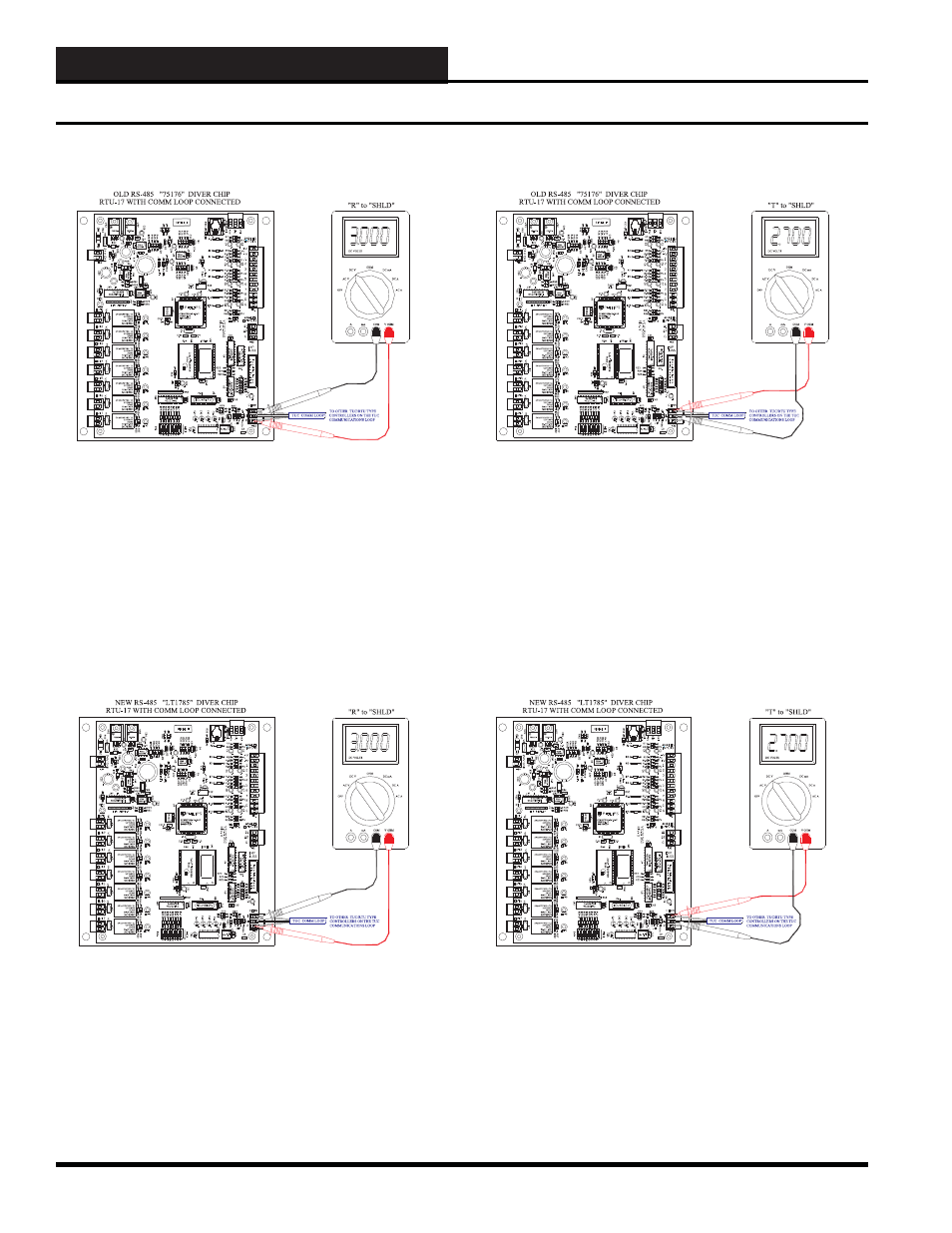Rs-485 communications, Rtu-17 troubleshooting with a digital voltmeter – WattMaster WM-WCC3-TGD-01B User Manual
Page 472

10. RS-485 COMMUNICATIONS
WCC III Technical Guide
10-20
RTU-17 Troubleshooting with a Digital Voltmeter
Figure 10-29: Typical RTU-17 RS-485 TUC Communications DC Voltage Measurements with the TUC COMM
Loop Connected – 75176 Driver
Figure 10-30: Typical RTU-17 RS-485 TUC Communications DC Voltage Measurements with the TUC COMM
Loop Connected – LT1785 Driver
The voltage measurements in Figure 10-29 are approximate voltages. Older RTU-17 Controllers used a different RS-485 driver chip.
These voltages are taken when the RTU-17 controller is “ON” and the RS-485 TUC communications loop is connected. These two
voltages will fl uctuate slightly and also will momentarily “fl ip” to the other meter reading’s value. The voltage measurements from “T” to
“SHLD” should be around 2.70 VDC. The voltage measurements from “R” to “SHLD” should be around 3.00 VDC. Typical bad voltages
measurements values would be anything above 3.8 VDC and anything below 1.5 VDC.
The voltage measurements in Figure 10-30 are approximate voltages. Older RTU-17 Controllers used a different RS-485 driver chip.
These voltages are taken when the RTU-17 controller is “ON” and the RS-485 TUC communications loop is connected. These two
voltages will fl uctuate slightly and also will momentarily “fl ip” to the other meter reading’s value. The voltage measurements from “T” to
“SHLD” should be around 2.70 VDC. The voltage measurements from “R” to “SHLD” should be around 3.00 VDC. Typical bad voltages
measurements values would be anything above 3.8 VDC and anything below 1.5 VDC.